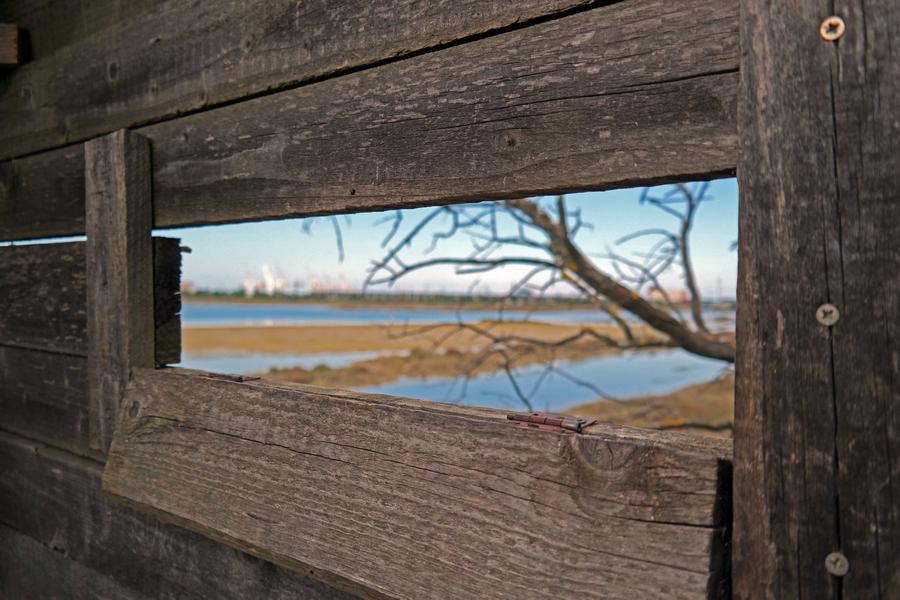).
The conditions within the inlet have much improved since the nature reserve is under protection. At first the inflow of sufficient fresh water was secured, and faecal wastewater discharge regulated. Thus stagnation of water in the lagoon is prevented, and threat of bird poisoning eliminated.
Waste was removed from the area. Due to the new water management infrastructure water level can be regulated. Today the Škocjan inlet is one of the most beautiful protected areas in Slovenia. "In this way we have managed to create this beautiful swamp in the freshwater part of the reserve, with marshy pastures and meadows in the south where water is shallower, while on the northern part with deeper water reed grows," the president of the society Borut Mozetič explained.
300 species of butterflies, of beetles...
Škocjan inlet is now permanent or temporary home to several hundred animal species. "Now we have here 300 species of butterflies, 300 species of beetles – five species noticed here for the first time ever in Slovenia - 38 species of dragonflies, amphibians, reptiles, and 247 species of birds, all recorded since 1997 on this rather limited area. Considering the fact that in Slovenia approximately 370 species of birds have been observed, more than 60% have been seen here, which is a lovely number. Last year we had the record number of nesting – more than 100 pairs of common tern," he added. Some species settled in the inlet only after suitable nesting places have been readied for them, e.g. small islands with specific bushes.
Four heads of Podolian cattle, and four Camargue horses
Some of the inhabitants of the reserve are much more noticeable – the hoofed animals. "Our herd consists of four heads of Podolian cattle, and four Camargue horses. Probably the herd won't increase in number in order to avoid overloading of pastures. Therefore we must find a solution for their offspring. These animals can be also considered workers of the nature reserve, as they help us manage the vegetation – there is no need for constant grass mowing," Mozetič continued.
Loredana Vergan, Radio Koper
translated by: G. K.


































































